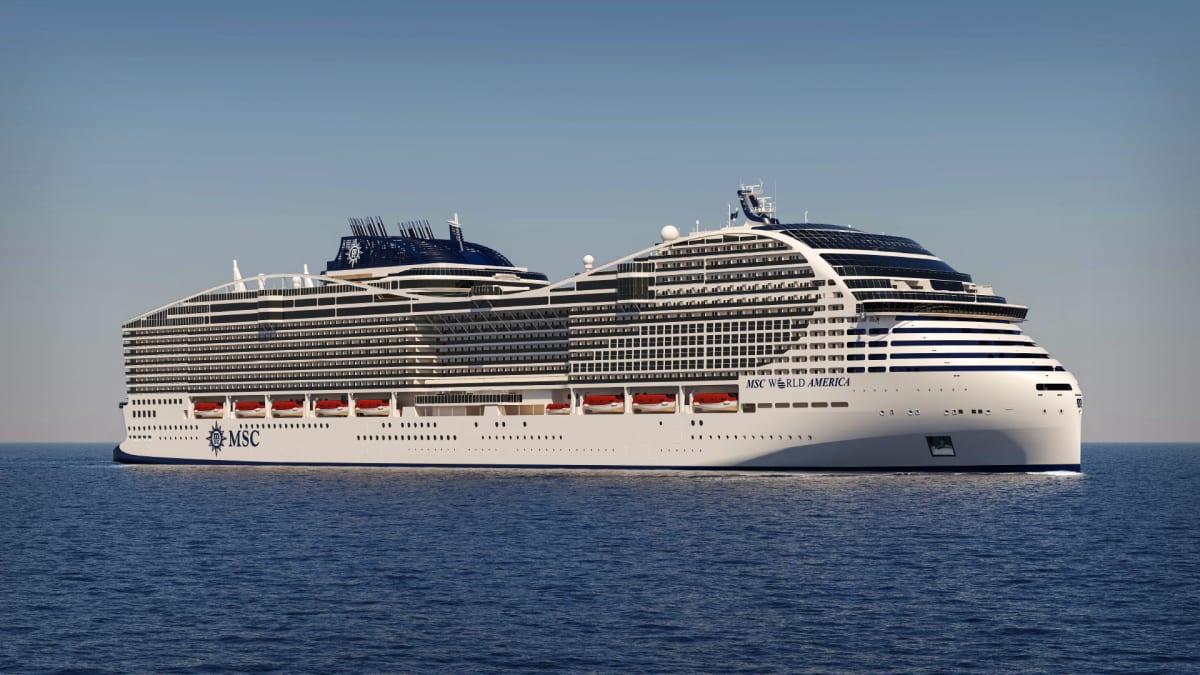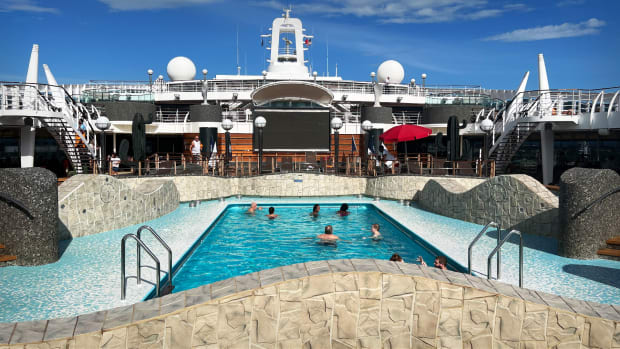
MSC has a very small presence in the United States. It sails six ships from Miami, Port Canaveral, and New York. That's a tiny fleet compared to what Royal Caribbean Group and Carnival Cruise Lines operate.
When you just look at Florida, Royal Caribbean (RCL) not only has more ships sailing from more ports, it also operates its Celebrity brand from many of those same ports. Carnival Cruise Line (CCL) also sails numerous ships from multiple ports and it has Holland America operating in the slightly higher-end part of the market.
DON'T MISS: Carnival and Royal Caribbean Share Key Tip to Not Ruin Your Cruise
MSC, a European name which has made a commitment to becoming competitive in the U.S. market, has a lot of disadvantages. Its two main competitors enjoy enormous brand recognition and have large lists of past customers to market to. In addition, both companies have massive marketing budgets and pricing that remains very favorable when compared to land-based vacations.
That makes it very hard for any competitor to take market share, but MSC actually has one big edge over its rivals even if it doesn't really market it. The upstart cruise line offers much better deals on drink packages which make its entry-level pricing much more attractive.

Image source: Daniel Kline/TheStreet
How Carnival and Royal Caribbean Drink Packages Work
While not every cruise passenger over 21 partakes in adult beverages, it's fair to say that bars and alcohol play a big part in many passenger's cruises. The problem is that drink packages cost a lot of money and neither Royal Caribbean nor Carnival generally includes them in their fares.
Carnival charges $59.95 per day plus an 18% gratuity for its Cheers! beverage package if you order it before getting on the ship. That price rises to $64.95 per day plus gratuity if you wait to buy until you get onboard. Carnival's package includes drinks up to $20 in value but does have a 15-drink limit per day for alcoholic beverages. (Non-alcoholic drinks are unlimited).
Royal Caribbean does not offer fixed pricing on its Deluxe Beverage Package (DBP). Instead, the price fluctuates based on a formula the cruise line does not share publicly. In most cases, the DBP, costs closer to the $70-80 per day range. The Royal Caribbean package includes drinks up to $15 and the only limit is that the cruise line can cut you off if you're visibly intoxicated.
MSC does its drink packages in a very different way and that could give it an edge over its rivals if more potential passengers knew how its beverage package works.
How MSC Does Its Drink Packages
MSC sells multiple drink packages instead of just one. That gives it a slight edge over Royal Caribbean and Carnival as its Easy Package, which offers a very limited selection, is the cheapest deal at sea at $49 per person, per day plus an 18% gratuity.
That's not MSC's best deal, however. When you book your room, you're generally (maybe not always) given the option to add drinks and WiFi to your basic fare. That gives you the Easy Plus beverage package -- the cruise line's mid-tier package which includes more beers and wines than the Easy package as well as all mixed drinks made with well liquors, as opposed to a small selection of cocktails -- as well as one WiFi connection.
In general, this is a very good deal. On a mock booking for a four-night sailing on MSC Seashore the basic fare costs $199 per person. Add in the drinks and WiFi offer and the cost rises to $329 per person. That means that instead of paying $256 per person for the Easy Plus Package (or $196 for the Easy Package) you will pay an extra $130 per person and get a WiFi connection (about a $40 value) on top of that.
The Easy Plus package offers a lot of selection and you can pay the difference if you want a drink that's not included in the package. MSC does sell a Premium Extra Package at $88 per person, per day, but that's actually not a very good deal.
Neither Royal Caribbean nor Carnival comes close to offering an unlimited drink package for what amounts to $42.50 per day (and the deal generally gets better on longer cruises).

.png?w=600)





